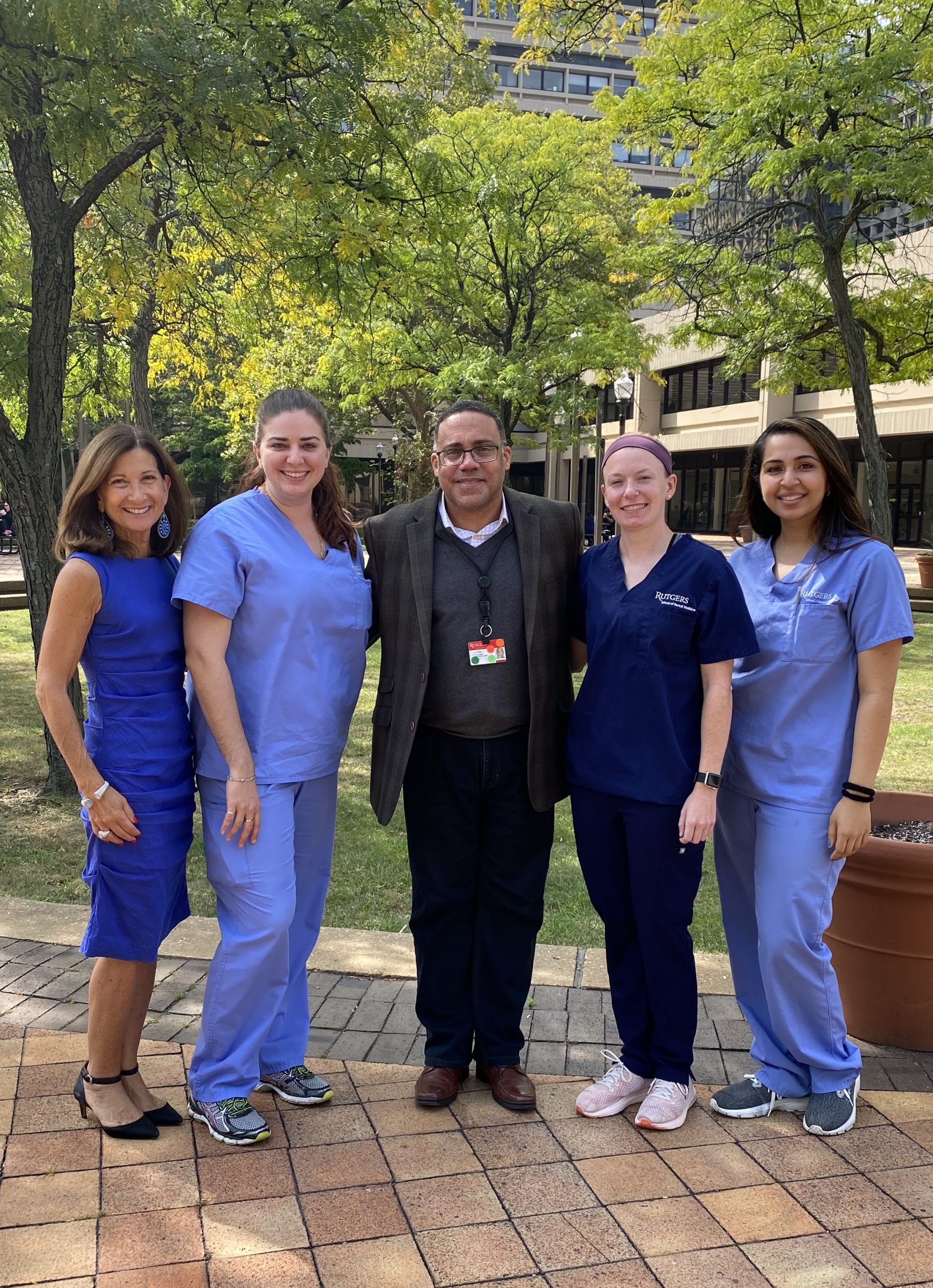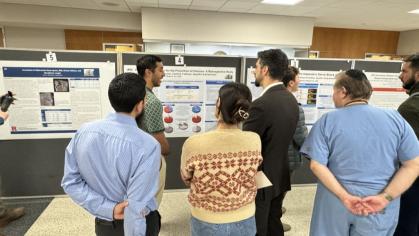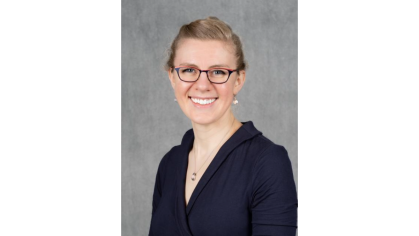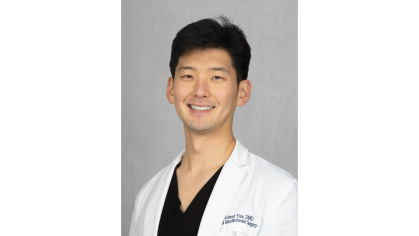Faculty Raise Awareness of LGBTQ Educational and Healthcare Needs Within Dental Profession
 From left, Dr. Rosa Chaviano-Moran, RSDM Dental Equality Club member Jena Cabrera, Dr. Herminio Perez, and club members Leeann Bak and
From left, Dr. Rosa Chaviano-Moran, RSDM Dental Equality Club member Jena Cabrera, Dr. Herminio Perez, and club members Leeann Bak and
Nilika Gulati.
RSDM faculty and others across the nation last month helped present "Out and Safe," the final webinar of an American Dental Education Association (ADEA) series that focused on supporting LGBTQ communities.
“All panelists were representing those communities within dental education, or they were an ally,’’ said Dr. Herminio Perez, a moderator of the series and RSDM Assistant Dean of Student Affairs, Diversity and Inclusion. He was joined by Associate Dean for Admissions Dr. Rosa Chaviano-Moran. Dr. Perez identifies as a member of the LGBTQ community while Dr. Chaviano-Moran is a fervent ally and mother of a community member.
For both, the webinar was an extension of their work serving underrepresented groups within RSDM and beyond, they said. It also underscored the importance of considering “intersectionality” within marginalized communities, where the combined impact of race, gender, ethnicity and sexual orientation must be considered, said Dr. Chaviano-Moran.
Both Dr. Perez and Dr. Chaviano-Moran have played key roles in the development of ADEA's series, which began after Dr. Perez suggested the need to address LGBTQ issues in dental education. ADEA's Senior Vice President for Access, Diversity and Inclusion, Dr. Sonya G. Smith, invited both Drs. Perez and Chaviano-Moran to help shape the series under ADEA's sponsorship, with the support of RSDM Vice Dean Kim E. Fenesy and Dean Cecile A. Feldman.
"Out and Safe" centered on creating a supportive and inclusive environment for LGBTQ faculty and staff at dental institutions. Dr. Perez outlined the importance of cultural competency and identifying barriers and challenges faced by the LGBTQ community.
In recent years, there has been an increase in the number of people who identify as LGBTQ, due mostly to the declining stigma surrounding non-binary gender identities and sexual orientation. ADEA cited a recent Gallup poll reporting that 8.1% of millennials identify as LGBTQ.
“Because the millennial generation comprises the largest cohort of students applying to dental school and entering the dental workforce, it is imperative that dental school communities explore ways to create a more inclusive and equitable environment,’’ ADEA stressed.
But dental schools have lagged behind other medical professions in providing information and lessons about LGBTQ issues that can arise in healthcare and academia. Many dental institutions still don’t have student clubs where LGBTQ students and allies can gather, feel valued and included. Both Chaviano-Moran and Perez are faculty advisors for the RSDM Dental Association for Equality, comprised of LGBTQ students and allies, and one of the first of its kind nationwide.
“Being a member of the LGBTQ community is internal not external, like race or ethnicity. It’s something that some people are afraid to share publicly and for some people, it’s a big struggle,’’ said Dr. Chaviano-Moran. “They struggle privately because they aren’t accepted at home or because of their culture, religion or they’re afraid they won’t fulfill loved one’s expectations. Our profession is amazing, but it can be antiquated in that respect.’’
She and Dr. Perez emphasized the importance of conveying to LGBTQ community members and prospective students that they will be safe, understood and accepted at RSDM “We value what you bring to the table,’’ said Chaviano-Moran. “We value and know that diversity breeds educational excellence. This is how we learn from each other.”
Dr. Perez said a goal at RSDM is to encourage students who are LGBTQ to feel open and comfortable being who they are. “Take the risk,’’ he said. “But know that we are here to catch you.’’
Fourth-year RSDM student Jena Cabrera, who came out as LGBTQ after much internal struggle, was invited to speak at one of the series' webinars last year. She said RSDM's Dental Association for Equality has been a vital resource for her and others.
According to Cabrera, support from classmates, faculty and staff can be as crucial as the acceptance of family members. "It’s just as important as having that supportive atmosphere at home. If not, you’re basically living a lie. I was living that for awhile, and it wasn't fun.''



